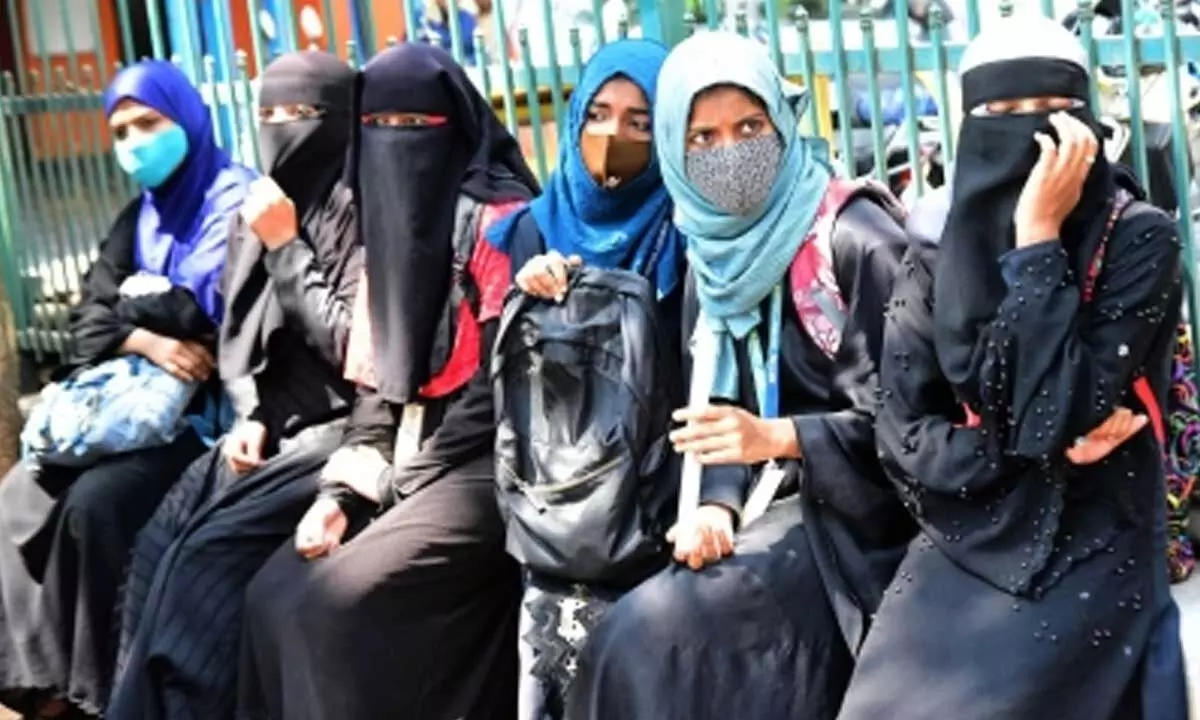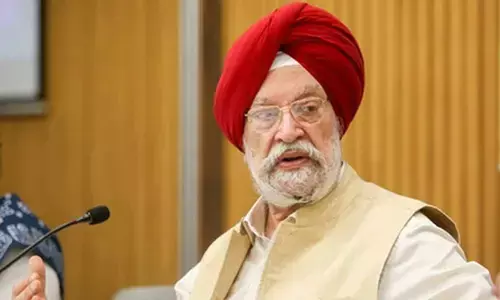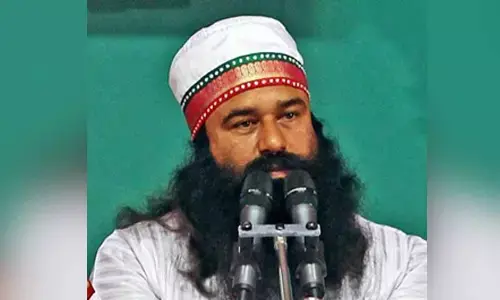Women wearing hijab must be looked at with dignity, not as caricatures: Petitioners to Supreme Court

Women wearing hijab must be looked at with dignity, not as caricatures: Petitioners to Supreme Court (Photo/IANS)
Counsel representing petitioners challenging the Karnataka High Court judgment on hijab on Monday told the Supreme Court that women who wear hijab must not be looked upon as caricatures, and when wearing of a turban is not objected to, then why object to this head covering?
New Delhi: Counsel representing petitioners challenging the Karnataka High Court judgment on hijab on Monday told the Supreme Court that women who wear hijab must not be looked upon as caricatures, and when wearing of a turban is not objected to, then why object to this head covering?
Senior advocate Yusuf Mucchala, representing some petitioners, submitted that women who wear hijab must not be looked upon as caricatures and they must be looked at with dignity. He said they are strong-willed women and nobody can impose their judgement on them.
As a bench of Justices Hemant Gupta and Sudhanshu Dhulia queried that if his main argument is that it is an essential religious practice, Mucchala said his argument is that it is his right under Articles 25(1)(a), 19(1)(a) and 21, and on a conjoint reading of these rights, his fundamental rights are violated.
"What is the crime these little girls are committing? Putting a piece of cloth on their head?"
He added if wearing of a turban is not objected to and it shows that there is tolerance for diversity, then why object to the hijab.
Mucchala said two rights are given -- freedom of religion and freedom of conscience -- and they complement each other and added that the high court should not have gone into issue whether hijab was an essential religious practice by interpreting the Quran, as it did not have the expertise in the field.
The bench replied that it had no option, as the petitioners claimed it to be essential religious practice. Mucchala said whether hijab is a fundamental right or not is applicable here and the question here is not about religious denomination but an individual's fundamental right.
Senior advocate Salman Khurshid, representing some petitioners, submitted that one would wear a prescribed uniform, but the question is whether a person can wear anything more which is important for her culture.
As the bench asked Khurshid what was his view on hijab being an essential religious practice, he said it can be seen as religion, conscience, and culture, and also can be seen as individual dignity and privacy.
Khurshid added that there is no binary like obligatory and non-obligatory in Islam. "What is in the Quran is obligatory," he said. He added that revelations in the Quran are not man-made, they are the word of God, which came through the Prophet and it is mandatory.
He also said he will not say uniform must be dispensed with, but there is something in addition with the uniform which should be permitted.
He submitted that the idea of unity in diversity comes from this preservation of composite culture, and added that one of his clients is a Sikh woman, as some of them have started wearing turbans, the issue may arise for them too.
Khurshid also distinguished between burqa, hijab, and jilbab through pictures, and emphasised on the importance of cultural identity.
"Ghoonghat is considered very essential in UP or north India. When you go to the gurudwara, people always cover their heads. This is culture."
He further added that in mosques in some countries, people don't cover their head, but in India people wear a head cover, and this is culture.
After hearing detailed arguments, the top court scheduled the matter for further hearing on September 14.
The apex court is hearing submissions on the fourth day against the Karnataka High Court's judgement of March 15 upholding ban on hijab in pre-university colleges.














